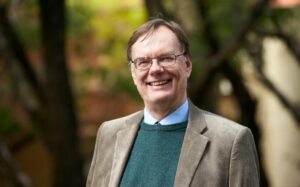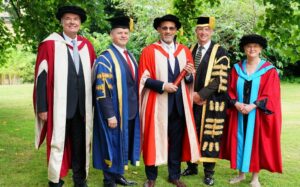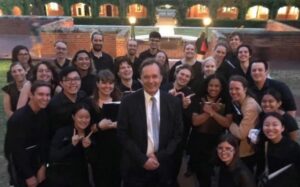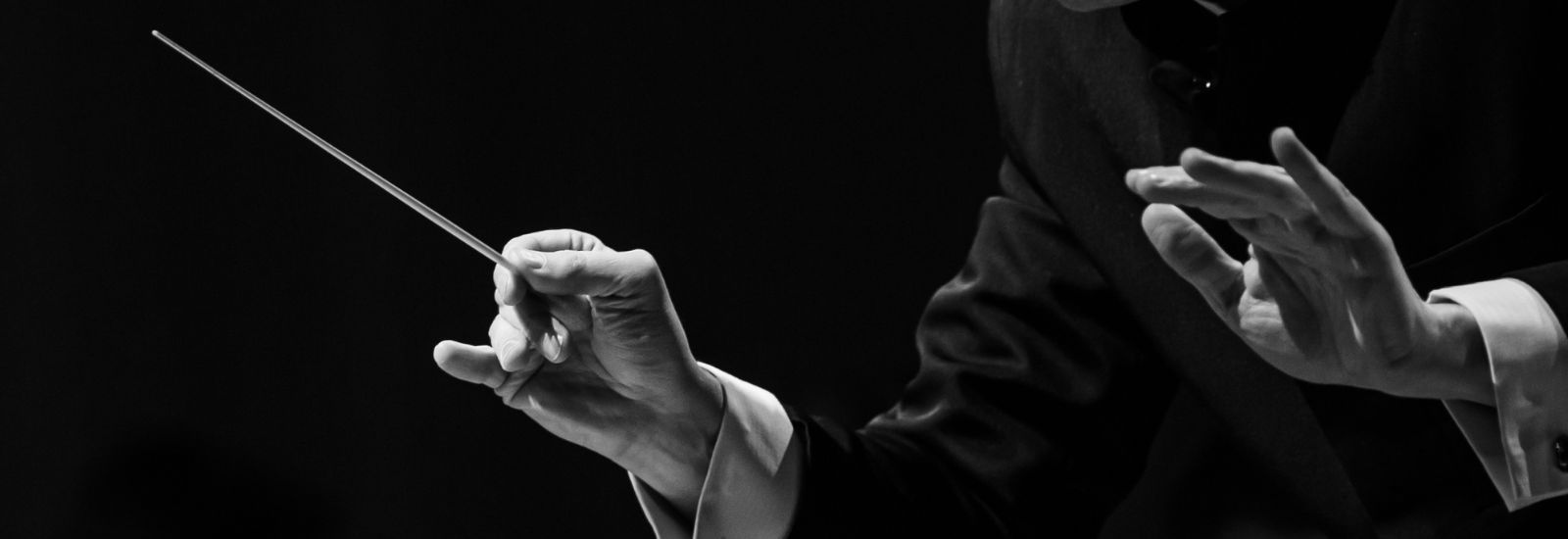“Musical sounds afforded one of the bases for the development of language,” wrote Charles Darwin. A theory which continues to inspire many of us today – including Reading alumnus and internationally renowned composer, conductor and music researcher, Dr Nicholas Bannan.
Dr Nicholas Bannan’s own pioneering work in the field of music education is inspiring the next generation of children and music educators. He spoke to CONNECTED about his passion for music, which he believes “…is not a mere decoration experienced passively through earphones – it is arguably our oldest means of liaising with others of our species.”
Tuning musical minds
 Music has played a part in Nicholas’ life for as long as he can remember. He explained: “My curiosity about, and passion for, the art form was sparked by both my parents and my early experiences of music during my education as a chorister of Canterbury Cathedral.
Music has played a part in Nicholas’ life for as long as he can remember. He explained: “My curiosity about, and passion for, the art form was sparked by both my parents and my early experiences of music during my education as a chorister of Canterbury Cathedral.
“I played piano, violin and viola, sang bass-baritone once my voice changed, and took composition lessons.”
Nicholas’ passion for music continued into his career as a choral exhibitioner at Clare College, Cambridge, and he went on to teach music at Eton College, before making the move into state schools. He said:
“Having been trained by outstanding teachers and composers – like Alan Ridout – I wanted to continue to inspire students about music and applied to do a PGCE at the University of Reading.”
After completing his PGCE in 1982, Nicholas took on the role of director of music at Desborough College in Maidenhead. He said: “The School had an excellent choir that was regularly invited to perform with London orchestras, as well as on TV with artists such as Cliff Richard, Duran Duran, Culture Club and Slade.”
Nicholas also taught PGCE students composition at Reading on a part-time basis, and worked at the Yehudi Menuhin School. He said: “As I started teaching, the National Curriculum was just being formalised. A significant – and welcomed – change to music was that composition and improvisation would feature within the requirements, and the subject would be taught in both primary and secondary schools.
“These changes presented challenges to people who were new to the profession, and who had not encountered these experiences in their own music education. I set up Compose Yourself!, a partnership that provided workshop opportunities for students, and courses on composition for teachers, which were both in huge demand following the National Curriculum changes.”
Nicholas embraced this new approach to teaching music with composition at its core through his research and teaching, and eventually became full-time at the University of Reading until 2005.
Releasing creativity
Nicholas studied for a PhD at the International Centre for Research in Music Education (ICRME) in 1996, where he investigated the use of electronic resources in vocal education, and the means by which vocal potential can be released in singers of all ages and abilities. He said:
“I wanted to solve the problem of how to share children’s musical ideas so that they could compose songs for others without these having to be written down in music notation, and I founded the University of Reading’s first children’s choir which enabled me to practice and carry out this research.”
Nicholas was fascinated by the challenge of providing the ability to compose without using music notation, and this led him to create Harmony Signing.
He explained: “With a gestural method, participants can learn to express musical ideas with relative ease. But the practice is also quintessentially social, since it depends entirely on a trustful and empathetic sharing of responsibility for the musical interaction to work.
“My experience of working with children and adults on Harmony Signing has demonstrated that everyone can participate at their own level in group music-making, and have original musical ideas.”
 During his time at Reading, Nicholas received a request to tutor an exchange student called Wesley Watkins – now known as Dr Wes. He said: “Wesley applied for a PhD at Reading and I became his supervisor. Vocal education and black American experience were – and have remained – his two main areas of interest.”
During his time at Reading, Nicholas received a request to tutor an exchange student called Wesley Watkins – now known as Dr Wes. He said: “Wesley applied for a PhD at Reading and I became his supervisor. Vocal education and black American experience were – and have remained – his two main areas of interest.”
In 2015 Nicholas visited Dr Wes in Oakland, California, and saw him teaching sessions of The Jazz & Democracy Project®, an integrated music curriculum that uses jazz as a metaphor to bring democracy to life. He recalled: “I felt very fortunate to see him in action exploring the parallels between musical creativity and political representation.”
Fast forward 10 years, and Nicholas was invited back to Reading for Dr Wes’ honorary graduation ceremony. He said: “I’m so proud of Wesley and I’m delighted that his work has been recognised.”
Musical evolution
 Nicholas continued to have a significant role with the children’s choir at Reading until he decided to relocate to the University of Western Australia (UWA), where he taught music education and supervised school placements. On his retirement in 2020 he decided to return to the UK, however his planned international work on Harmony Signing became impacted by the pandemic.
Nicholas continued to have a significant role with the children’s choir at Reading until he decided to relocate to the University of Western Australia (UWA), where he taught music education and supervised school placements. On his retirement in 2020 he decided to return to the UK, however his planned international work on Harmony Signing became impacted by the pandemic.
Nicholas has found himself drawn back to Reading throughout his illustrious career, and reconnected with the University in the summer of 2024 when he was introduced to Dr Rebecca Berkley, Associate Professor in Music Education at the University’s Institute of Education.
He said: “As we started talking, the parallels between our areas of work were immediately obvious. She had also set up a children’s choir at Reading called Universal Voices, and she invited me to lead workshops with her students and the children’s choir. This marked a key milestone for me as I have now resumed the practical work I was doing before lockdown.
“My ambitions for the future are to disseminate Harmony Signing as widely as possible so that there are experts who can continue its development when I’m gone. I’m currently planning on giving workshops in Japan, Poland, Lithuania, Spain and Crete, as well as around the UK – with some of these organised by University of Reading alumni.
“It was during my time at Reading that, to adopt Darwin’s formulation, I examined aspects of music that represented the vocal foundations on which the subsequent development of language was dependent. It was this framework that fed into my work on Harmony Signing in which the intention is to teach music without relying on spoken language for its explanation.
“It means a lot to me to reconnect with Reading again and see my work come full-circle.”
Making music accessible
Nicholas’ passion for opening up the world of music to children is clear to see. He said: “I believe it’s imperative to start with singing as early in the life-cycle as possible and maintain vocal interaction throughout schooling. It’s important to retain the role of creativity, rather than promoting regimentation and uniformity.”
Turning his thoughts to those who are looking to embark on a career in music education, Nicholas offers up some advice. He said: “Sing, play an instrument or two to a high standard, but also compose, improvise, take leadership roles, listen to and participate in as many musical styles as possible from all over the world.
“The most important thing is to have the ability to make music with others of all ages and backgrounds.”
Discover more about Dr Nicholas Bannan’s pioneering work.




